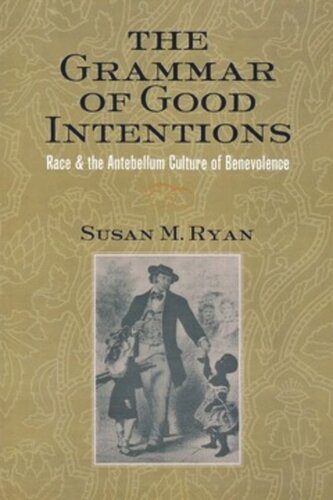

Most ebook files are in PDF format, so you can easily read them using various software such as Foxit Reader or directly on the Google Chrome browser.
Some ebook files are released by publishers in other formats such as .awz, .mobi, .epub, .fb2, etc. You may need to install specific software to read these formats on mobile/PC, such as Calibre.
Please read the tutorial at this link: https://ebookbell.com/faq
We offer FREE conversion to the popular formats you request; however, this may take some time. Therefore, right after payment, please email us, and we will try to provide the service as quickly as possible.
For some exceptional file formats or broken links (if any), please refrain from opening any disputes. Instead, email us first, and we will try to assist within a maximum of 6 hours.
EbookBell Team

5.0
98 reviewsSusan M. Ryan explores antebellum Americans' preoccupation with the language and practice of benevolence. Drawing on a variety of cultural and literary texts, she traces how people working and writing within social reform movements—and their outspoken opponents—helped solidify racial and class ideologies that ultimately marginalized even the most "deserving" poor. "The links between race and the relations of benevolence occasioned much soul-searching among antebellum Americans," Ryan explains. "In a period of heated public debate over issues such as slavery, Indian removal, and non-Protestant immigration, the categories of blackness, Indianness, and a generic 'foreignness' came to signify, for many whites, need itself." Ryan puts familiar literary works such as Herman Melville's The Confidence-Man, Frederick Douglass's My Bondage and My Freedom, and Harriet Beecher Stowe's Uncle Tom's Cabin back into dialogue with a broad range of print materials: the reports of charity societies, African American and Native American newspapers, juvenile fiction, travel writing, cartoons, sermons, and tract literature. In the process, she dispels the myth that authors usually classified as literary were responding to a simple and unquestioned cult of benevolence. Rather, she contends, they were participating in the complex and often rancorous debates occurring within the broader culture over how good intentions should be expressed and enacted.Ryan's inquiry into the antebellum culture of benevolence has implications for contemporary U.S. society, resonating especially with recent debates over welfare reform, the politics of compassionate conservatism, and representations of "welfare queens" and violent urban youth. As Ryan writes, "The conversations that this book reconstructs remind us of our ongoing participation in the national ritual of laying claim to good intentions."